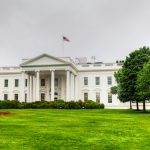What Is Online Brokers Regulation?
Online brokers regulation is when an agency or government department regulates what brokers can do. That happens because trading is a modern activity that not everyone understands, which can make people do illicit activities without noticing or even avoiding taxes.
The regulatory agencies are the ones in charge of setting the rules that traders need to follow to operate with no trouble with the agency or government itself. Those regulations are necessary since they protect both traders and people in general.
Everything needs some regulation or rule to keep order. With online brokers regulation, traders and brokers can have specific rules they have to follow and study. That makes them reduce their operation range significantly. Doing that helps traders to focus on what they need to do and become more successful.
Those regulations can vary depending on the zone and the agency that sets those rules. However, they tend to be related to balance protections, minimum capital requirements, taxes, and more things to keep everything in order without jeopardizing other people or the traders themselves.
Table of Contents
Who Establishes Those Regulations?
As mentioned before, regulatory agencies are the ones in charge of setting the regulations in a specific zone and making sure people respect them. Those agencies can even work with the government or be part of it.
Regardless of that, there are many online brokers regulatory agencies worldwide. They can establish regulations are a national, international, or regional level. However, those regulations don’t tend to differ a lot from each other, so it’s not difficult to understand them and adapt to them.
The U.S-based regulatory agencies are:
- National Futures Association (NFA).
- Commodity Futures Trading Commission (CFTC).
- Financial Industry Regulatory Authority (FINRA).
Not all agencies or regulatory bodies operate on the same level. Even though their regulations can be similar to each other, they can offer different levels of protection and cover different aspects of trading. That helps all agencies to work as a whole to address different circumstances and situations regarding online trading.
There are also some international regulatory bodies. Since they are international, traders from several countries have to study them and follow their regulations if they want to keep trading. It’s good to know those agencies even if you don’t have to follow their rules. Some of them are:
- Financial Conduct Authority (FCA), which operates in Europe.
- Cyprus Securities and Exchange Commission (CySEC), which operates in Europe.
- Australian Securities and Investments Commission (ASIC).
Agencies that establish regulations tend to give traders a license. That license lets traders operate in that zone with no trouble. However, not every country or city requires you to have a license to trade, so everything depends on where you live or work.
What Happens If I Don’t Follow the Regulations?
Many people underestimate the regulatory agencies and think they can’t do anything to stop them from not following the regulations and doing whatever they want. Yet, that couldn’t be further from reality.
Regulatory bodies can do many things to either prevent you or stop you from breaking the rules and not following the regulation. For starters, the agencies can suspend you or permanently take your trader’s license from you. You need that license to operate in your zone, so not having it can be an issue for you.
Apart from that, since some agencies work with the government, they can pursue legal actions if required. Yet, this doesn’t happen at all places. However, what those agencies can do is make alerts.
Those alerts may seem harmless but can determine if a trader is successful or not. The alerts can be national or international. They are dangerous for traders because they scare investors and potential clients away.
What About Forex Trading?
Forex trading is on a whole different level than other forms of online trading. That’s because it operates differently and affects the market in different ways. However, governments and international authorities are constantly looking for ways to regulate forex traders, too.
There are currently some agencies and places where agencies regulate forex brokers and traders. An example of that is the FSA, which regulates online traders in Japan and also states rules to regulate forex traders in the country.
Something similar happens in the U.S with the Securities and Exchange Commission (SEC). The SEC sets as an obligation to be registered with the Retail Foreign Exchange Dealers (RFEDs) to trade in the country. That applies to forex traders, so they also have specific regulations to protect both traders and clients.
Since the SEC is a government agency, they can pursue legal actions against people who don’t follow the regulations or break the rules regarding trading or forex trading in the country.
Benefits of Online Brokers Regulations
Having those regulations brings some benefits to traders worldwide. For starters, since regulatory agencies regulate brokers, traders get to choose a regulated broker that they know is legal and verified by the place’s authorities. That helps them avoid scams and people who just want to take money away from them.
That helps traders to avoid losing their money. Regulations protect traders from that in many ways. For example, regulated brokers need to tell traders the percentage of accounts that lose money while trading before they sign up for a trading account.
Those regulations also improve security for traders, which protects their operations, funds, and overall capital. That protection helps people feel safer while investing in the stock market or trading.
Some agencies even offer financial compensation for traders in case anything goes wrong. However, not all of them do that, and the ones that do it set specific circumstances that must be met to receive that compensation.
Bottom Line
Understanding online brokers regulation is essential to comprehend how the market works and how to trade successfully. Many people think those regulations limit how much you can profit from trading, but they are not fully aware of how much those rules protect them and benefit them.
Studying the regulations for your zone is essential, so make sure to do it before you start trading.
WeInvests is a financial portal-based research agency. We do our utmost best to offer reliable and unbiased information about crypto, finance, trading and stocks. However, we do not offer financial advice and users should always carry out their own research.
Read More







